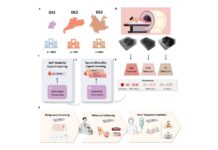Researchers have identified a protein, IL-35, that may offer a new therapeutic approach for type 1 diabetes and autoimmune diabetes mellitus. IL-35 protects the immune system by suppressing certain immune cells that release inflammatory chemicals, thereby reducing the infiltration of pancreatic cells—a key factor in these forms of diabetes.
With diabetes cases rising globally, especially among children and adolescents in developing countries, this discovery offers hope for more effective treatments. IL-35 is composed of two chains, IL-12α and IL-27β, encoded by the IL12A and EBI3 genes. The potential of IL-35 as a treatment for type 1 and autoimmune diabetes has captured the attention of researchers worldwide.
As per press release, a team from the Institute of Advanced Study in Science and Technology (IASST) in Guwahati, led by Dr. Asis Bala, Prof. Ashis K. Mukherjee, and Research Scholar Mr. Ratul Chakraborty, conducted a comprehensive pharmacological analysis on IL-35-related genes, gene-disease interactions, and experimental data. This analysis highlighted five genes linked to immune-inflammatory, autoimmune, neoplastic, and endocrine disorders.
IL-35 works by modulating macrophage activation, regulating T-cell proteins, and enhancing the action of regulatory B cells. It was shown to inhibit immune cells that attack pancreatic beta cells while lowering the levels of inflammatory-producing cells, thus protecting pancreatic cells from harmful infiltration.
Published in Cytokine and the World Journal of Diabetes, these findings could guide further research into IL-35’s mechanisms and its potential progression into clinical trials, offering a promising new treatment avenue for diabetes management.
























